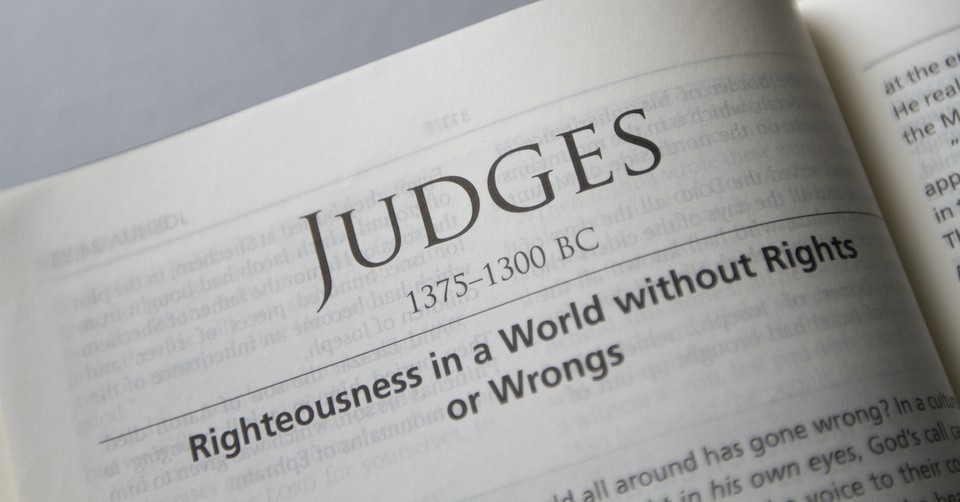Why the Story of Deborah and Barak Is Told Twice in the Bible

The Israelites behave badly, so Yahweh turns them over to cruel occupation by a Canaanite general. An Israelite prophetess convinces one of her countrymen to muster an army. The Israelites win the battle, and the foreign general flees on foot, eventually hiding in the tent of a nomad woman who murders him as he sleeps. The oppressor is gone, and the land enjoys a period of peace.
These are the bare facts of the story of Judges 4–5. It wasn’t told this way, in summary fashion, but it might have been. The story of Othniel (Judg 3:7–11) is treated this way, and Shamgar (3:31) gets just one verse: He killed 600 Philistines with a cattle prod and saved Israel. Period.
But the story of Deborah and Barak is so good they told it twice, once in narrative (Judg 4), and again in poetry (Judg 5). The two versions of the story play off one another in terms of genre, time, and viewpoint.
Prose VS Poetry
Judges 4 is a conventional narrative: a series of declarative sentences strung together to communicate information that advances the plot. It’s not that the sentences always proceed in chronological order; rather, events are recounted at the point in the story where they best drive the narrative. For example, Heber the Kenite’s relocation to Kedesh may have happened before Sisera’s occupation (for all we know), but it doesn’t become important to the story until 4:11.
Judges 5, on the other hand, is exemplary Hebrew poetry: short parallel lines, carefully crafted to evoke rather than explain. The story is told not as a series of plot points but as an artfully arranged selection of images: Yahweh thundering at Sinai (5:4–6; see Exod 19:16–20); the stars themselves fighting by Israel’s side (5:20; see Job 38:7); an army of chariots washed away by a flood (5:21; see Exod 14); a once-mighty warrior fallen at a woman’s feet, exhausted—dead (5:27).
Then VS Now
According to Judges 5:1, Deborah’s song (Judg 5:2–31) was composed the day Sisera was defeated, making the song itself an event in the story it tells. Where Judges 4 looks back on historical events, the song exists in the moment, at the scene. From there, Deborah looks back, forward, and sideways through time—hearkening back to the Exodus, blessing helpers and cursing shirkers in the present day, and then leaping forward to Sisera’s mother waiting for her son. Ironically, Deborah, physically bound within her own time, is free to let her version of the story roam through time and space. But the narrator, speaking from above and beyond the events, must keep his version firmly rooted within the temporal bounds of the plot.
Viewpoint: His VS Hers
Judges 4 is told in the voice of the omniscient biblical narrator. He knows every detail of the events, why they happened, and how they fit into the larger structure of Judges and the history of Israel. Deborah, as one of the actors in the story, has a limited view of history as a whole, but a closer view of the events at hand. Her song reflects her concerns at the time: Who contributed most to the effort and who stood in the way. Never mind the gender-role reversal at the heart of the story (4:9).
Deborah’s feminine wit cuts deeper than any narrative voice could. She, the “mother” of Israel (5:7), depicts Sisera’s mother as fecklessly consulting her advisors and getting a wrong answer (5:28–30). Her son is not late because he is busy stealing embroidered cloth (5:30), he is lying dead under a “rug” (4:18 NRSV). He is not whiling away the hours violating young women (5:30), he has been penetrated by a woman with a tent spike (4:21). In the narrative, Sisera’s death is shamefully absurd. In Deborah’s recasting, it is poetic justice, divine retribution, and sexual politics all rolled into one.
There are other Old Testament stories that are reiterated by a poem or song: The Song of Moses and Miriam (Exod 15), The Song of Moses (Deut 32), David’s Lament (2 Sam 1:19–27), his song of deliverance (2 Sam 22:3–51; Ps 18), and his last words (2 Sam 23:1–7).
By listening to a character sing about what has just happened, we learn more about what the story meant to them, and in turn, more about what it means to us.
Photo credit: ©Sparrowstock
Originally published March 04, 2014.







